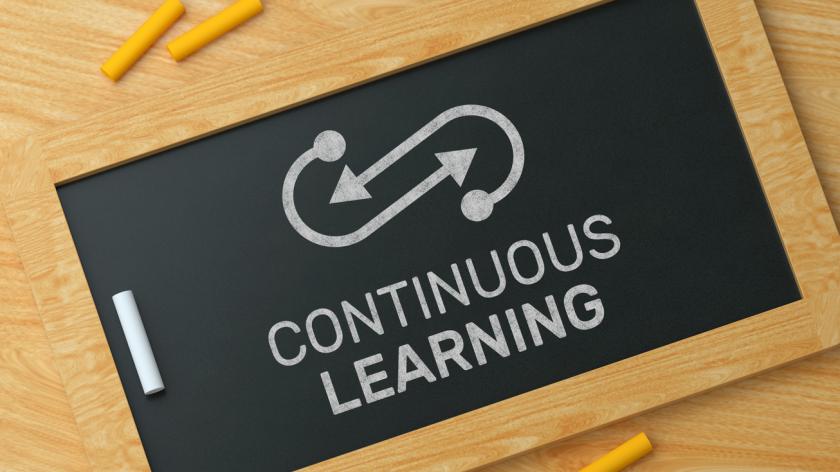Experience and expertise are not the same. Continuous learning and development really is the only solution to ensure we nurture our organisational experts.
The idea that employees learn on the job – and that experience therefore leads to expertise – is familiar in many organisations. Anyone in a training role will also be aware of the concept of ‘learning by doing’: That the majority of workplace learning occurs not through exposure to theory, but through taking part in real-world experiences.
We notice the benefits of learning by doing during significant career changes. For example, we may experience a steep learning curve when required to take on new responsibilities. This happens because we learn what works and doesn’t work from the consequences of our actions, and it is an extremely valuable paradigm.
The correlation between experience and expertise is often much weaker than we tend to assume.
Don’t be basic
Learning by doing ensures that we do not have to constantly re-learn basic skills. By way of comparison, no-one would argue that reading a book about tennis is enough to teach you to play the game. New tennis players typically experience a steep learning curve if they go out to practice regularly.
The danger in today’s high-pressure workplace comes from the flipside of learning by doing. It is a phenomenon that acts to stifle the development of expertise beyond the level required for delivering today’s business results. It is the skill development that does not occur once we feel we know what we are doing. This is the paradox I label with the term ‘not learning by doing’.
Despite our common assumption that skill development improves in a linear relationship with years of experience, in fact the learning curve always flattens. At work, this is usually because we are under pressure to deliver results. Once we feel we have enough capability to meet today’s needs, we stop working on improving and instead just get on with doing the job.
In terms of the tennis analogy, once we feel we are good enough to play a match, we stop trying to improve a weak backhand and instead just rely on that strong forehand to win as many games as possible. This shift in focus from learning to doing is rarely obvious, and so long as our results meet what is needed today, we will continue to focus on delivering results with little attention to improving our methodology.
The hidden costs of not learning by doing
As a result, the costs of not learning by doing are mostly hidden. For the organisation, there is the hidden cost that employees growing in experience are not necessarily growing in expertise. Indeed, research on the development of workplace expertise by Dr. Anders Ericsson and colleagues has demonstrated that the correlation between experience and expertise is often much weaker than we tend to assume. For employees there is the opportunity cost of the better outcomes that could have been achieved, had they been able to invest time in ongoing skill development.
Two circumstances worsen not learning by doing. Surprisingly, the first is moderate success. We learn rapidly from bad results because a poor outcome is often obvious. In contrast, so long as there is no evident disaster, we tend to go about our daily working lives – and the behavioural habits we carry with us are unlikely to change much. Thus moderate success prevents us from developing greater expertise because we are unlikely to question our current techniques.
Whatever skills we have that will get the job done become the tools we will rely upon most – even if they are suboptimal
The second circumstance that worsens not learning by doing is a high-pressure work environment. Continual pressure to deliver results leads to a focus on meeting today’s needs. As a result, whatever skills we have that will get the job done become the tools we will rely upon most – even if they are suboptimal. In a high-pressure environment employees have no space to try new approaches and develop greater expertise because trying something new necessarily runs the risk of making mistakes.
Source: https://www.trainingzone.co.uk/lead/culture/continuous-learning-how-to-avoid-the-hidden-costs-of-not-learning-by-doing
Photo Credit to: GOCMEN/iStock


Recent Comments